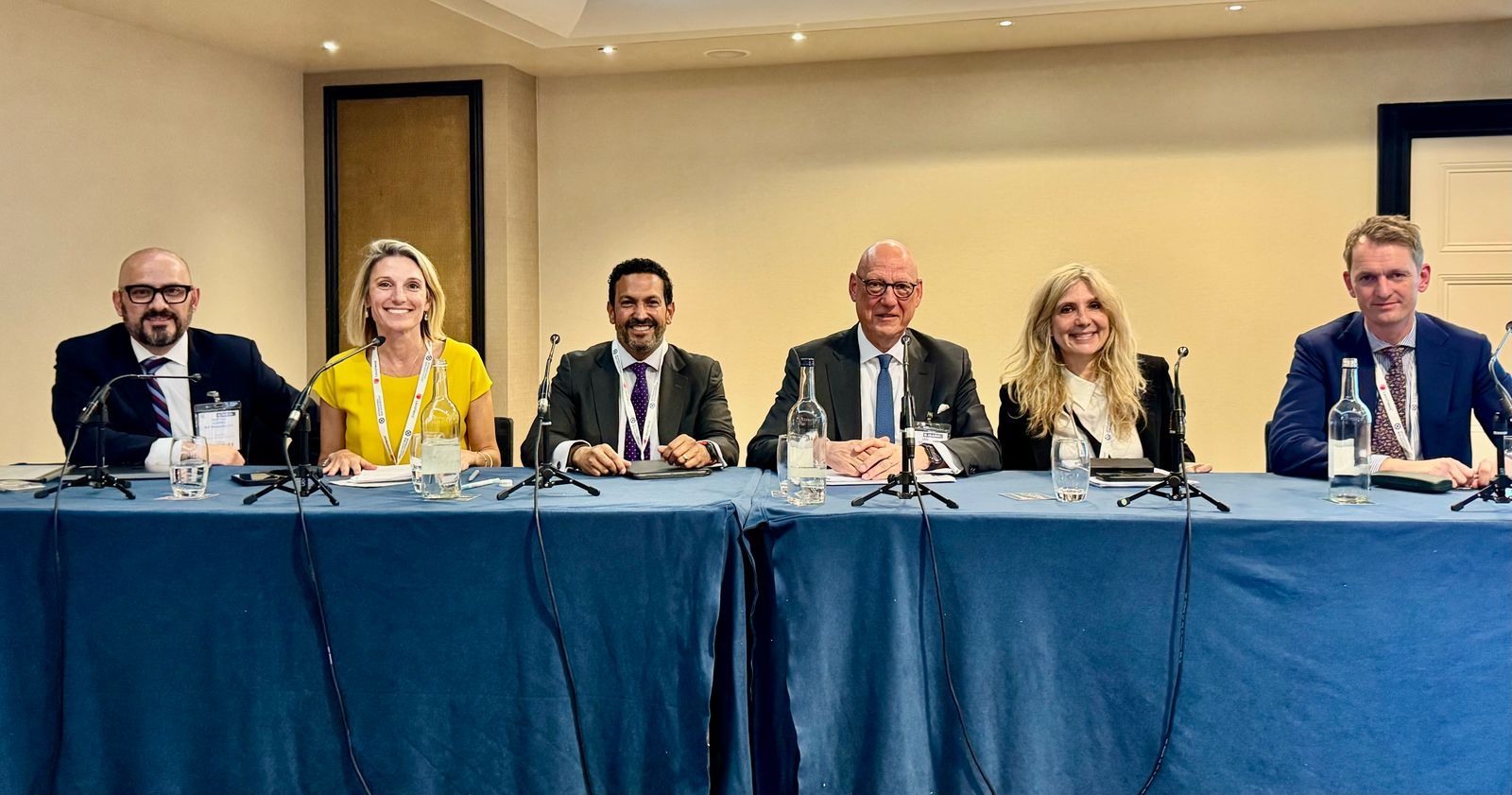


We are proud to share that our Managing Partner, Dr. María Belén Espiñeira, participated as a moderator at the Conference on Global Insurance Trends, organized by the International Bar Association in London in April 2025.
Dr. Espiñeira had the honor of moderating the panel “Navigating Risk and Regulation: Latest Trends in Marine Insurance and Maritime Law,“ co-coordinated by Neftali Garro (BLP, San José, Costa Rica; Treasurer of the IBA Insurance Committee) which featured distinguished participation of Alexandra Couvadelli, LLB, LLM (Gard, United Kingdom), Jan Dreyer (Arnecke Sibeth Dabelstein, Germany), Leonel Pereznieto del Prado (Creel, Mexico), and Mathias Steinø (Hafnia Law Firm, Denmark).The panelists shared their professional experiences and extensive technical and legal knowledge on the subject.
The session brought together leading experts from Europe and the Americas to examine the evolving relationship between marine insurance and transportation law, particularly in light of recent geopolitical developments, cyber threats, and the increasing complexity of sanctions regimes.
The discussion explored how insurers are addressing cyber incidents that challenge traditional risk classifications, blurring the lines between conventional maritime perils, cyber risks per se, and acts of war. The panel also addressed the legality of ransom payments, the compliance difficulties posed by diverse cybersecurity regulations across jurisdictions, and the challenges arising in a sector that relies on a globally distributed workforce.
The impact of conflict zones and politically motivated violence on marine insurance was a key focus. Legal and underwriting implications of terms such as “warlike operations” and “hostilities” were analyzed, as well as the distinction between piracy and politically motivated maritime crime. The panel emphasized the need for clearer policy wording and the role of the courts and regulatory bodies was highlighted as a strategic area for further development.
The panel discussed the growing impact and complexity of sanctions across all stages of the insurance process—from underwriting to claims handling, compensation payments, and the issuance of letters of indemnity, which are essential to avoid disruptions to shipping operations and international trade when incidents covered by marine insurance occur. Additional topics included the operational consequences of “ghost fleets” and the implications of the recent designation of Mexican cartels as Foreign Terrorist Organizations (FTOs) by the U.S. Administration.
Marine insurance has evolved beyond the mere coverage of physical losses. It now serves as a strategic instrument for enabling global trade with legal certainty and predictability in an increasingly interconnected and risk-exposed world.
The sector is undergoing profound transformation: today’s marine insurers must not only manage claims but also confront unprecedented legal, geopolitical, and regulatory challenges, requiring greater agility, strategic foresight, and interdisciplinary coordination.
The panel underscored the urgency of updating regulatory frameworks, clarifying policy language, and fostering greater judicial interpretation to reduce uncertainty. Moreover, it highlighted the growing demand for technical expertise and contextual analysis capabilities to operate in high-risk geographies and emerging regulatory environments.
In closing the panel, Dr. Espiñeira emphasized the critical role of marine insurance as a cornerstone of predictability and legal certainty for global trade. She asserted that in an industry as global, interconnected, and exposed as maritime transport, insurance is a key enabler of economic stability and sustainable development. In light of the potentially disruptive and unpredictable consequences of cyberattacks, geopolitical conflicts, and sanctions enforcement, the ability of the insurance sector to adapt, anticipate, and respond has never been more vital—not only for clients and market players, but for the resilience of the global economy itself.